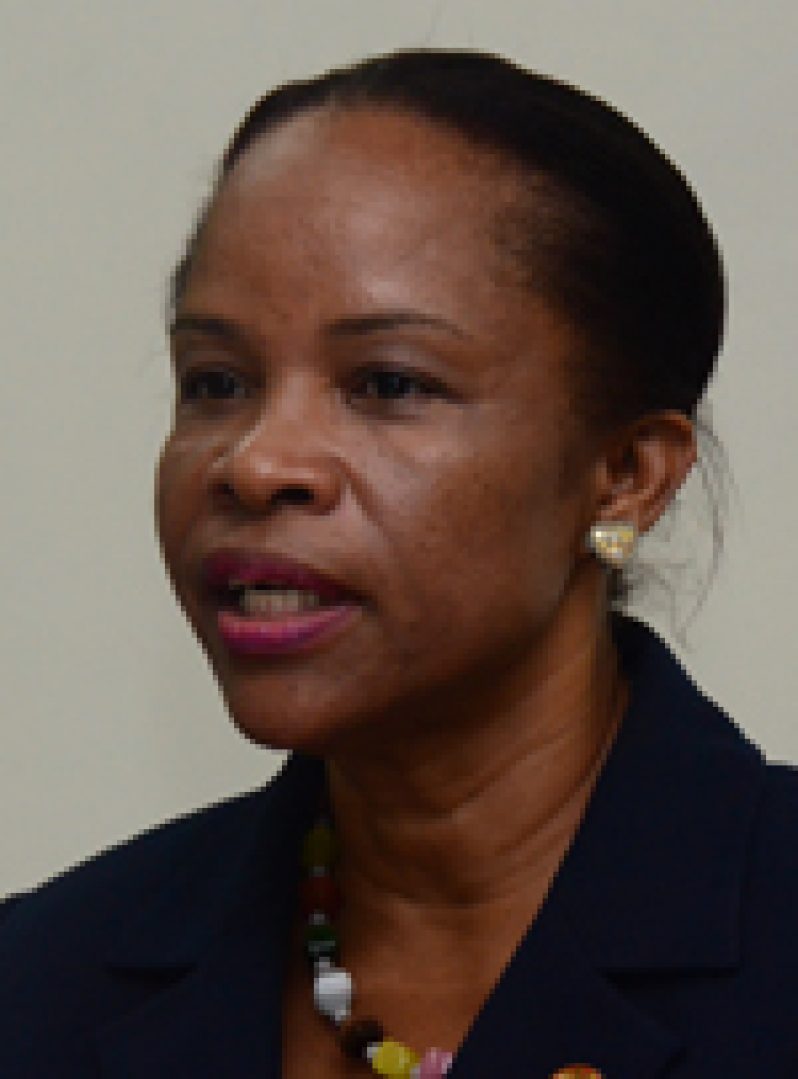THE changing composition of Guyana’s national output dictates that human resource development should make appropriate adjustments in order to keep abreast with developments.
 This is according to Cambridge-trained professional economist Ms. Joycelyn Williams, Chairperson of local vocational management training firm the JTW Management Institute Inc., headquartered at the Private Sector Commission (PSC) Building on Waterloo Street, North Cummingsburg, Georgetown.
This is according to Cambridge-trained professional economist Ms. Joycelyn Williams, Chairperson of local vocational management training firm the JTW Management Institute Inc., headquartered at the Private Sector Commission (PSC) Building on Waterloo Street, North Cummingsburg, Georgetown.
Speaking Wednesday at a graduation ceremony held for the Institute’s inaugural batch of trainees, Williams pointed out that services comprised 65% of the Guyana economy in 2012, a significant increase since “1985, when it was just about 30%.”
“Banking, retail, tourism, call centres, distribution, government services, education have become very important in Guyana’s economy,” she explained, adding, “these industries require investment in human resources by individuals and by corporate entities, to help them grow to world class industries.”
Williams pointed out that “an economy comprising mostly goods requires a services-based economy. A goods economy requires infrastructure such as roads, bridges, and other physical resources to move these goods, (while) a services economy requires more skills, more human resources,” she opined.
Williams added that the accumulation of such skills set is a challenge Guyana now faces. She elaborated: “In the presence of one of the highest rates of migration, we face the challenge of how we can motivate our young people with adequate incentives to invest in themselves as a priority.”
She reminded her audience that the World Economic Forum includes business sophistication as one important indicator of economic competitiveness. Then she asserted: “Naturally, the quality of (the) human resource will determine how sophisticated our businesses are.”
GOOD CITIZENS
Williams said the JTW Management Institute’s decision to provide vocational training flowed from “our recognition that those who go through high school but do not reach CXC stage, or those who are not successful in a required number of subjects, often require a different pathway [to] fulfilling” their potential. “Our job as good citizens is to help our young people find their…talents,” she declared.
Williams noted that although the country’s technical institutes “are already providing useful avenues for training in business and vocational engineering and construction courses”, proprietary surveys indicate that “there are still not enough institutions offering training in areas such as Hospitality Management and Customer Service, English for the Office, Beauty and Fashion Designing”, among other things.
“These are credible areas of skills where young people can fulfil their passion…in life,” she stressed, adding that many of the courses on the market need to be in shorter modules to attract young people with shorter attention spans.
CITY & GUILDS
The University of Guyana lecturer said the City and Guilds qualifications which trainees are awarded on completion of the Institute’s courses were chosen since their courses “are so designed that a student can start almost from scratch, without any previous qualifications”; and are configured “in short modules that encourage persons to commit to completion of (the courses) and receive a certificate.”
Moreover, she indicated that the City and Guilds qualifications “are recognised in more than 80 countries”.
“That is not to say we are preparing them to migrate,” she quipped, adding, “but in the unlikely event that the graduate with a City and Guilds qualification emigrates, his or her certificate will be readily recognised as valid in many parts of the world.”
GRADUATES
Eleven participants, all females, graduated on Wednesday last with an award in Customer Service Improvement. In her address, valedictorian Tameka Hiles, an employee of Farfan and Mendes Ltd., said that while she was “a bit hesitant” when her managers referred her to the Institute for training, she found the experience worthwhile and informative.
The graduates are all currently serving in various customer service capacities at different public and private sector organisations.
JTW Management Institute’s classes are hosted at the Critchlow Labour College. Those desirous of more information can contact the Institute on email jtwmanagement9@gmail.com, or on telephone numbers 223-5148 or 661-2508.



.jpg)








